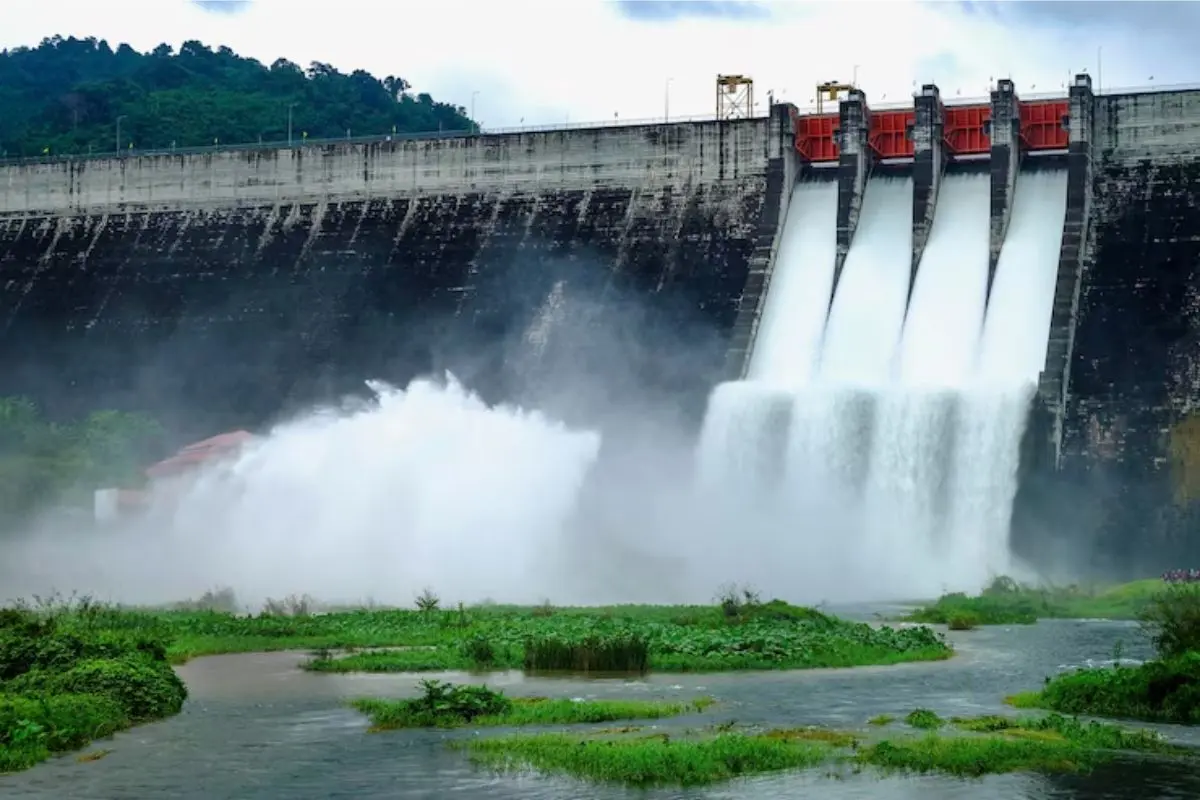
Afghanistan strengthens its water infrastructure, Islamabad fears a significant impact on its water security
India’s renewed commitment to the Shahtoot Dam project in Afghanistan has triggered fresh concerns in Pakistan, highlighting the growing complexities of regional water diplomacy. The $236 million hydroelectric and irrigation project, funded by India, aims to provide drinking water to 2 million Kabul residents and irrigate 4,000 hectares of land.
However, its location on the Kabul River, which flows into Pakistan’s Khyber Pakhtunkhwa province, has raised alarms in Islamabad. With India recently suspending the Indus Water Treaty following the Pahalgam terror attack, Pakistan views this development as a potential threat to its water security.
Table of Contents
India’s Strategic Engagement with Afghanistan
India’s External Affairs Minister Dr. S. Jaishankar recently held a high-level diplomatic conversation with Afghanistan’s Foreign Minister, marking the first strategic engagement since the Taliban took power. This dialogue signals India’s intent to deepen its partnership with Kabul, particularly in infrastructure development.
The Shahtoot Dam project is part of India’s broader strategy to support Afghanistan’s economic stability while countering Pakistan’s influence in the region. With no formal water-sharing agreement between Afghanistan and Pakistan, Islamabad has little leverage to challenge the project.
Pakistan’s Concerns Over Water Security
Pakistan relies heavily on the Indus River system, which supports 80% of its irrigated agriculture and contributes 25% to its GDP. The Kabul River, originating in Afghanistan’s Hindu Kush mountains, is a vital water source for Pakistan’s agricultural sector.
Islamabad fears that the Shahtoot Dam could reduce downstream water flows, exacerbating its existing water crisis. Additionally, Afghanistan has announced plans for another major hydroelectric dam on the Kunar River, further heightening Pakistan’s concerns.
With Pakistan already facing severe water shortages, any disruption in river flows could have economic and social consequences, potentially leading to diplomatic friction.
Geopolitical Implications: India’s Growing Influence
India’s involvement in Afghanistan’s water infrastructure is not just about development—it’s a strategic geopolitical move. By funding projects like the Shahtoot Dam, India strengthens its ties with Kabul while indirectly pressuring Pakistan.
This approach aligns with India’s broader regional strategy, which includes:
- Strengthening diplomatic ties with Afghanistan
- Countering Pakistan’s influence in South Asia
- Enhancing India’s role in regional water management
Pakistan’s strained relations with Afghanistan further complicate the situation. The Taliban government has shown willingness to cooperate with India, signaling a shift in regional alliances.
Potential Diplomatic Fallout
Pakistan may seek international intervention to challenge India’s role in Afghanistan’s water projects. However, with no binding water treaty between Afghanistan and Pakistan, Islamabad’s options remain limited.
India, on the other hand, is likely to continue supporting Afghanistan’s infrastructure development, reinforcing its long-term strategic interests in the region.
Conclusion: A New Era in Water Diplomacy
India’s commitment to the Shahtoot Dam project marks a significant shift in regional water politics. As Afghanistan moves forward with its infrastructure plans, Pakistan faces growing challenges in securing its water resources.
With geopolitical tensions rising, the coming months will be crucial in determining how India, Afghanistan, and Pakistan navigate this complex issue.